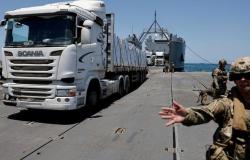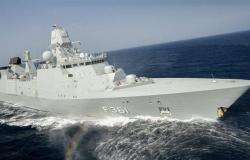At the head of the Dutch government continuously since October 2010, the liberal Mark Rutte is considered to have been the architect of the economic recovery of the Netherlands, which gave him a certain legitimacy to be the leader of the so-called “frugal” states. » within the European Union [UE]which was not without consequences since the latter had to resolve to put a damper on the financing of defense industries during discussions on the Multiannual Financial Framework [CFP] for the period 2021-27.
Still, the policy pursued by Mr. Rutte enabled the Netherlands to return to solid growth, particularly after having imposed a severe austerity cure to put public finances back on track, which had been undermined by the financial crisis of 2008.
However, the Dutch armed forces were not spared from budget cuts, to the point that they had to agree to abandon significant capabilities. To limit the damage, they made agreements with their German counterparts [Bundeswehr]. This austerity cure also had an operational impact, as in 2017, when the Netherlands was not able to send F-16 fighter-bombers to Jordan, as part of the anti-Islamic State coalition led by United States.
Between 2014 and 2017 Dutch military spending only represented, on average, around 1.15% of GDP… even though, like other NATO members, the Netherlands had made a commitment to increase it to 2% of GDP by 2024, at the Newport summit.
Then, after a slight increase observed between 2018 and 2021 [1,3 % du PIB en moyenne], the Dutch military budget was announced to increase significantly, the war in Ukraine having served as an electric shock. According to the latest NATO statistics, it should reach 2% of GDP in 2024.
Over the past ten years, the Secretary General of the Atlantic Alliance, Jens Stoltenberg, has continued to encourage the Allies to increase their military spending and to meet this objective of 2% of GDP. Ironically, he will be replaced, starting next October, by Mark Rutte, who was able to count on the support of the most influential members of NATO.
Although it had been known for a few days, after the withdrawal of the candidacy of Klaus Iohannis, the Romanian president, this decision was ratified by the North Atlantic Council on June 26.
“I know I will leave NATO in good hands. Mark is a true defender of transatlantic relations, a strong leader and a consensus builder,” responded Mr. Stoltenberg, via [anciennement Twitter].
“Your leadership and experience will be crucial to the Alliance during this difficult period,” commented President Ursula von der Leyen. [sortante] of the European Commission, referring to the appointment of Mr. Rutte.
Incidentally, in 2018, the person said “preferring NATO to a European army”. And added: “To think that the European Union can guarantee its security without NATO is an illusion. NATO and the United States within the organization remain a crucial partner for peace and security in Europe and we will continue to highlight this in discussions with our partners.”
Whatever happens, the coming months promise to be complicated. As Secretary General, Mr. Rutte will have to coordinate military aid to Ukraine, to which he contributed significantly by paving the way for the transfer of F-16 fighter-bombers to the Ukrainian air force. And he could have to deal with Donald Trump, if he wins the American presidential elections next November.
Note that, on the French side, General [air] Philippe Lavigne will be replaced as head of Supreme Allied Command Transformation [SACT] by Admiral Pierre Vandier, until now major general of the armies. Since France regained integrated military command of NATO, this position has systematically gone to an aviator.






